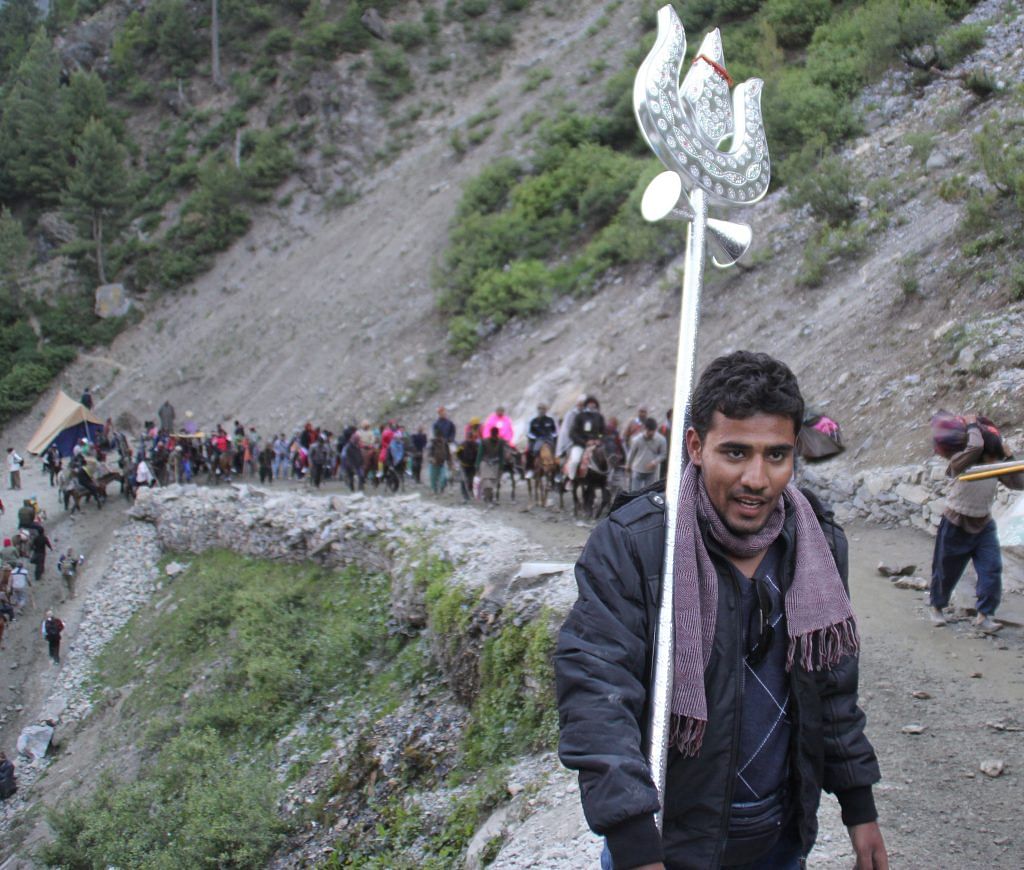The NGT’s Amarnath order has raised questions about its jurisdictional limitations. However, this is not the only NGT order that has caused a stir this year.
The National Green Tribunal Thursday raised eyebrows when it passed an order declaring the area around the ‘Shivalinga’ at Amarnath a “silence zone”. The cave shrine in Jammu and Kashmir is considered a holy place by Hindus. The order enraged many, especially devotees, who claimed that the NGT was overstepping its jurisdiction.
However, this is not the first time that an NGT order has sparked controversy. Here are some other orders by the tribunal that ruffled feathers this year:
Capping the number of pilgrims at Vaishno Devi
NGT restricted the number of visitors allowed at Vaishno Devi, a shrine in Jammu, to only 50,000 people per day. This order, passed by Justice Swatanter Kumar on 13 November 2017, made clear that if the number of pilgrims crossed 50,000, their entry will be restricted at Ardhkuwari or Katra town. The order caused an uproar among devotees.
Directing chairpersons of state pollution control boards to quit
On 8 June 2017, the NGT ordered the chairpersons of 10 state pollution control boards to quit if they failed to meet the qualification criteria for the post. However, this order was quashed by the Supreme Court as it deemed that the tribunal “exceeded its jurisdiction in directing the State Governments to reconsider the appointments and in laying down guidelines for appointment to the SPCBs”.
Banning demonstrations at Jantar Mantar
The NGT banned all protests at Jantar Mantar in New Delhi on 5 October this year, stating that such events violated environment laws.
The tribunal said that it was the duty of the state to ensure that the right of people to live a peaceful and comfortable life was not infringed by those who create noise pollution in the name of freedom of speech, which can never be unlimited.
Directing Delhi schools and colleges to install rainwater harvesting systems within two months
The NGT, on 16 November, directed all private and government schools and colleges in New Delhi to install rainwater harvesting systems on their premises. The cost had to be borne by the institutes themselves, and the system installed within two months of the order. This was a major challenge with institutions saying that a two-month deadline was too short to make infrastructural changes, logistics, and to arrange for funds.
Intervening in Delhi government’s plan to combat air pollution
When Delhi’s air pollution reached hazardous levels on 9 November, the NGT took matters into its own hands and passed multiple orders. These included a temporary ban on construction activities in the city, prohibiting burning of waste materials, stopping entry of heavy vehicles in the city, as well as directing the Delhi government to take affirmative action to fight pollution. It also questioned the exemptions being granted by the Delhi government in the execution of the odd-even scheme, resulting in the scheme being scrapped this year.
